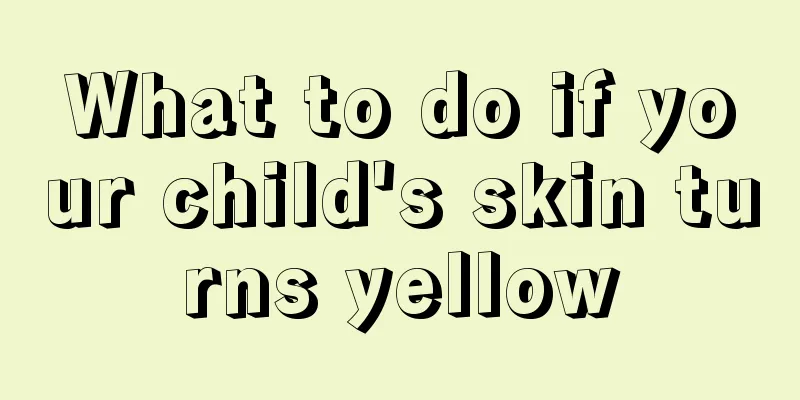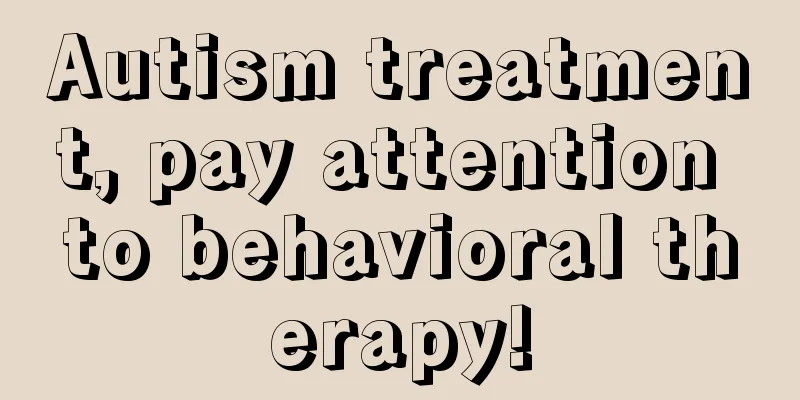What causes seizures in children?

|
Convulsions in children are a relatively common emergency, which mainly causes systemic or local spasms in children. Most children will experience this phenomenon. There are many causes of convulsions in children, such as infection, intracranial disease, metabolic abnormalities, etc. Therefore, when parents find abnormal behavior in their children, they should find the relevant causes in time. What are the causes of convulsions in children? 1. Infection. It is common in meningitis, encephalitis, brain abscess, sepsis, tetanus, etc., with purulent meningitis and sepsis being the most common. For babies with intrauterine infection, convulsions occur within 3 days after birth, while for babies with postnatal infection, convulsions are more common after 1 week after birth. Neonatal febrile seizures are rare. 2. Intracranial diseases. Hypoxic-ischemic encephalopathy. It accounts for 60%-70% of the causes of convulsions, and convulsions are more common within 24 hours after birth; hypoxic and birth traumatic intracranial hemorrhage: convulsions are more common 2-3 days after birth; cerebral infarction: mostly middle cerebral artery infarction, convulsions are more common 1-4 days after birth. 3. Medicine. Drug overdose or poisoning. Such as stimulants, aminophylline, organophosphates, etc. Withdrawal syndrome: Anesthetics and phenobarbital drugs used by pregnant mothers can pass through the placenta into the fetus. The drug supply is suddenly interrupted after delivery, and convulsions often occur within 6 hours after birth, and return to normal within 24-48 hours. 4. Metabolic abnormalities. Hypoglycemia, which often occurs within 3 days after birth; hypocalcemia, including early-onset seizures occurring 1-3 days after birth and late-onset seizures occurring 1-2 weeks after birth; hypomagnesemia, which often coexists with late-onset hypocalcemia; hypercalcemia or hyponatremia; vitamin B6 deficiency: seizures occur from a few hours to 2 weeks after birth and are ineffective with sedatives; bilirubin encephalopathy; abnormal amino acid metabolism: maple syrup urine disease, phenylketonuria, hyperglycinemia, etc. 5. Congenital malformations of the central nervous system. Hydrocephalus, cerebral hypoplasia, microcephaly, etc. 6. Other reasons. Diseases such as polycythemia, galactosemia, and hypertensive encephalopathy may also cause convulsions in newborns. |
<<: What causes jaundice in children?
>>: What causes children’s hands and feet to sweat?
Recommend
What are the treatments for dental caries in children?
Tooth decay is definitely very uncomfortable for ...
What are the preventive measures for hand, foot and mouth disease in children?
Hand, foot and mouth disease in children is a rel...
What should I do if my baby has a hole in his big tooth?
Most babies usually like to eat sweets very much....
What to do if baby's hand is scalded and blistered
Babies are prone to many accidents because they s...
What should I do if my baby has eye mucus?
I believe everyone knows what a baby is. If there...
How to carry out early intervention for special children?
Children's physical development is very impor...
What should a four-year-old baby eat if he is anemic?
Each of us mothers may not know much about the qu...
What kind of exercise can children do to grow taller?
The situation of children nowadays is that they e...
Should babies be bathed every day?
Many parents bathe their newborn babies every day...
What is the treatment method for foreign matter in baby's eyes?
Foreign objects in the eyes can cause great harm ...
What’s wrong with my child’s lymph nodes not shrinking?
Everyone may get sick in their lifetime. Some dis...
What are the dietary precautions for children with asthma?
Because children have relatively weak physical re...
What to do if your two-year-old baby has strabismus
What to do if your two-year-old baby has strabism...
Three methods of correcting baby's head shape
Because the bones of a baby's head are not fu...
How many of the three major shortcomings in educating babies do you have?
When educating your baby, there are many things t...









